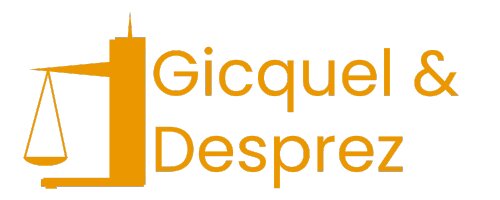Best Job Discrimination Lawyers in Vannes
Share your needs with us, get contacted by law firms.
Free. Takes 2 min.
List of the best lawyers in Vannes, France
About Job Discrimination Law in Vannes, France
Job discrimination in Vannes, France, as with the rest of the country, is taken seriously under French labor laws. Discrimination refers to unequal treatment of employees based on various protected characteristics such as age, gender, race, religion, sexual orientation, and disability. In Vannes, employers are required to uphold equitable hiring practices, promotions, and dismissals, ensuring a fair workplace environment. These regulations are designed to promote equality and fairness, providing legal protection to employees who may face discrimination.
Why You May Need a Lawyer
Legal help may be necessary in situations where individuals face discrimination at work, impacting their employment status or work environment. Common scenarios include being bypassed for a promotion, unfair dismissals, workplace harassment, or inequitable salary packages, all based on discriminatory practices. A lawyer specializing in job discrimination can provide valuable assistance, guiding affected employees in evidence collection, understanding their rights, and filing appropriate complaints or lawsuits to seek redress.
Local Laws Overview
Local laws in Vannes adhere to the national framework set forth by the French Labor Code and anti-discrimination directives by the EU. The laws make it illegal to discriminate based on specific protected grounds, and employers must adhere to principles of equal treatment. Employers found violating these laws can face significant penalties, including fines or being required to pay damages to the affected party. Vannes also adopts local enforcement agencies and labor offices that aid in addressing and resolving discrimination issues in the workplace.
Frequently Asked Questions
What constitutes job discrimination?
Job discrimination occurs when an employee or job applicant is treated unfavorably due to characteristics such as age, gender, race, disability, religion, or sexual orientation rather than their merit or qualifications.
How do I prove job discrimination?
You would need to collect evidence such as emails, testimonies, employment records, or any documentation showing discriminatory treatment. A lawyer can help in organizing this evidence effectively.
Can I be fired for reporting discrimination?
Legally, you cannot be fired or retaliated against for reporting discrimination. Such actions by an employer can themselves be considered discriminatory and are punishable under the law.
What should I do if I face discrimination at work?
Record documented evidence of the discrimination, consult a lawyer to understand your rights, and consider filing a complaint with the relevant labor authorities or bringing a lawsuit.
Are certain companies exempt from anti-discrimination laws?
No, all employers regardless of size or industry must adhere to anti-discrimination laws set out in the French Labor Code.
Is there a time limit for filing a discrimination claim?
Yes, typically you have up to 5 years to file a discrimination claim. However, it is advisable to act promptly as evidence may become harder to access over time.
Can a job advertisement be considered discriminatory?
Yes, if a job advertisement specifies restrictions based on age, gender, or any other protected characteristic without justification, it may be considered discriminatory.
What compensation might I receive for discrimination?
This may include reinstatement, back pay, compensation for emotional distress, or punitive damages, depending on the case's specifics and severity.
How can I file a complaint against my employer?
You can file a complaint with the Commission des Relations du Travail (CRT) or the Défenseur des Droits, who will investigate and propose resolutions.
Can discrimination laws protect temporary employees?
Yes, discrimination laws protect all employees, including temporary, part-time, and full-time workers, from discriminatory treatment.
Additional Resources
For further assistance, individuals can contact the local labor office in Vannes, the Défenseur des Droits, or organizations such as SOS Racisme and HALDE, which focus on defending against discrimination. These entities provide support, guidance, and can help facilitate legal actions where necessary.
Next Steps
If you believe you are a victim of job discrimination, consider consulting with a lawyer specializing in labor and discrimination law. Gather all evidence related to your case, and explore your options for filing a complaint with the designated authorities or pursuing legal remedies through the courts. Strengthening your understanding of your rights and available resources is crucial in effectively addressing and combating workplace discrimination.
Lawzana helps you find the best lawyers and law firms in Vannes through a curated and pre-screened list of qualified legal professionals. Our platform offers rankings and detailed profiles of attorneys and law firms, allowing you to compare based on practice areas, including Job Discrimination, experience, and client feedback.
Each profile includes a description of the firm's areas of practice, client reviews, team members and partners, year of establishment, spoken languages, office locations, contact information, social media presence, and any published articles or resources. Most firms on our platform speak English and are experienced in both local and international legal matters.
Get a quote from top-rated law firms in Vannes, France — quickly, securely, and without unnecessary hassle.
Disclaimer:
The information provided on this page is for general informational purposes only and does not constitute legal advice. While we strive to ensure the accuracy and relevance of the content, legal information may change over time, and interpretations of the law can vary. You should always consult with a qualified legal professional for advice specific to your situation.
We disclaim all liability for actions taken or not taken based on the content of this page. If you believe any information is incorrect or outdated, please contact us, and we will review and update it where appropriate.









